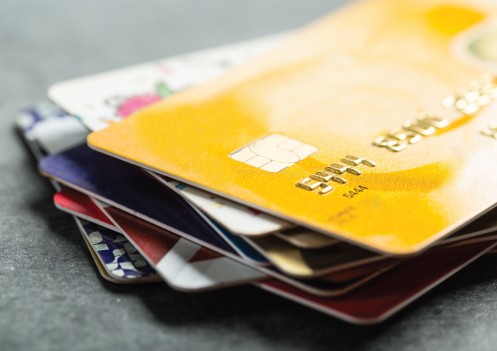When I recently read that according to Transunion, credit card balances grew 72% over the past year for Gen Z and 32% for millennials, I was quickly transported back to my younger self.
When it comes to credit card debt, I’ve been there, done that.
As in 5-figure debt. And this was a looong time ago.
I hope that gives 71-year-old me some cred in trying to help younger adults make smart spending decisions and avoid the financial hole I had to dig out of. I offer this advice as someone who knows in my bones how it happens, and how crappy it feels. (If you’re older, and know a younger adult, I hope you will forward this to them.)
No Blame, No Shame.
If you suddenly find yourself with unpaid credit card balances, don’t panic. You likely didn’t get much in the way of education on how to spend smart, and it’s not always easy to tell yourself no.
That said, you must, must, must recognize that this is the biggest fork in your road to financial freedom. Get control over your spending today and you will have a much better future. Let it slide and you will likely make credit card debt a chronic part of your financial life, which is going to make it hard to build any sort of financial security.
No BNPL for Wants.
Buy now pay later options can lead to a financial mess. Surveys show that people end up buying more when they use BNPL because their upfront cost (typically just 25% of the purchase price) is so low.
Rely on Debit, Rather Than Credit.
Okay, you absolutely need a credit card, as it is the clearest, quickest way to build a credit score profile. But my advice is to keep your credit card usage to a minimum. Maybe put one or two recurring charges on it and set up auto bill pay through your bank checking account. That’s it. For all other spending, use a bank debit card and turn off any option to have overdraft protection. That forces you into a pay-as-you-go system, as you won’t be able to make a purchase if there’s not enough money in your checking account.
Pay More Than the Minimum Due.
I know when you’re just getting rolling, and money is tight, it is tempting to focus on the fact that your credit card statement says you only need to make a minimum payment. The minimum payment is a trap that will end up costing you so much. The interest rate you will be charged on the unpaid balance is going to be 17% or more. If you currently have an unpaid balance, I want you to push yourself to pay as much as you can each month, to get it paid off ASAP. Keep reading.
Focus on Needs vs. Wants.
I want you to get in the habit of having an internal conversation every time you are about to spend money. Yes, every time. Do this for a few months and it will become a fantastic habit. The conversation is pretty simple. Ask yourself: “Is this a need, or a want?”
A need is something that is essential to your well-being. A want is something you’d like to have, but can ultimately live without if its cost will contribute to financial stress. An example: groceries are a need. Eating out is a want. Give yourself a strict budget for wants so you have more money for saving. And honestly, if you have credit card debt, I would love for you to entirely skip wants for a few months to get the card balance paid off as quickly as possible.
And most important, have faith in yourself to fix this. Every day that you make smart spending choices, and every month that you chip away at a balance, you are moving forward in building your financial security.
We can’t redo the past. Yet we are the sole authors of our future. I know you have everything it takes to write a great story of your road to financial freedom.
Top Resources for You

The Ultimate Retirement
Guide for 50+
Learn More

MUST HAVE® Documents
Online Program
Learn More







